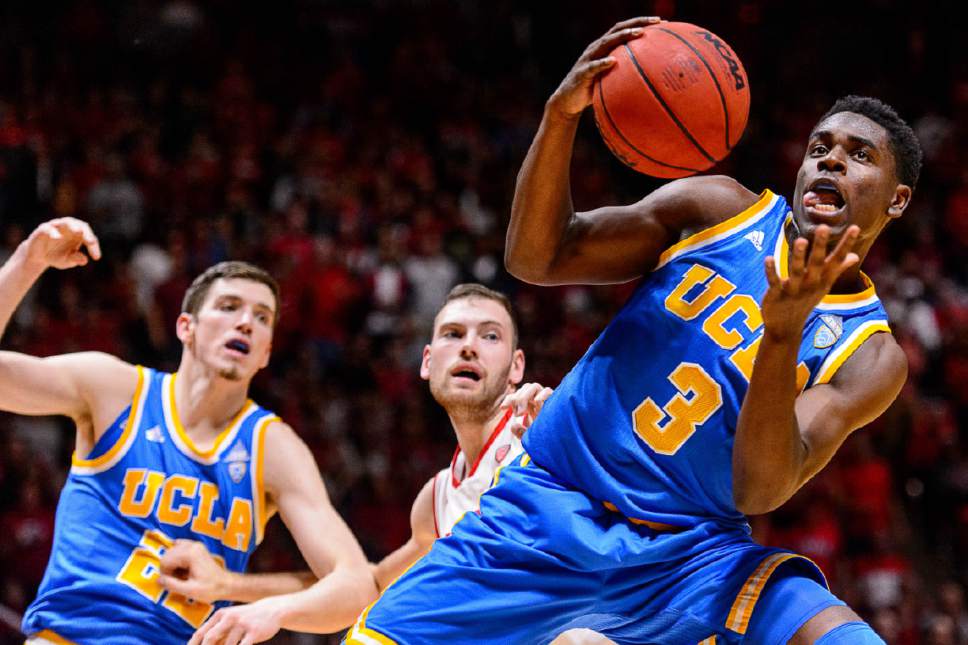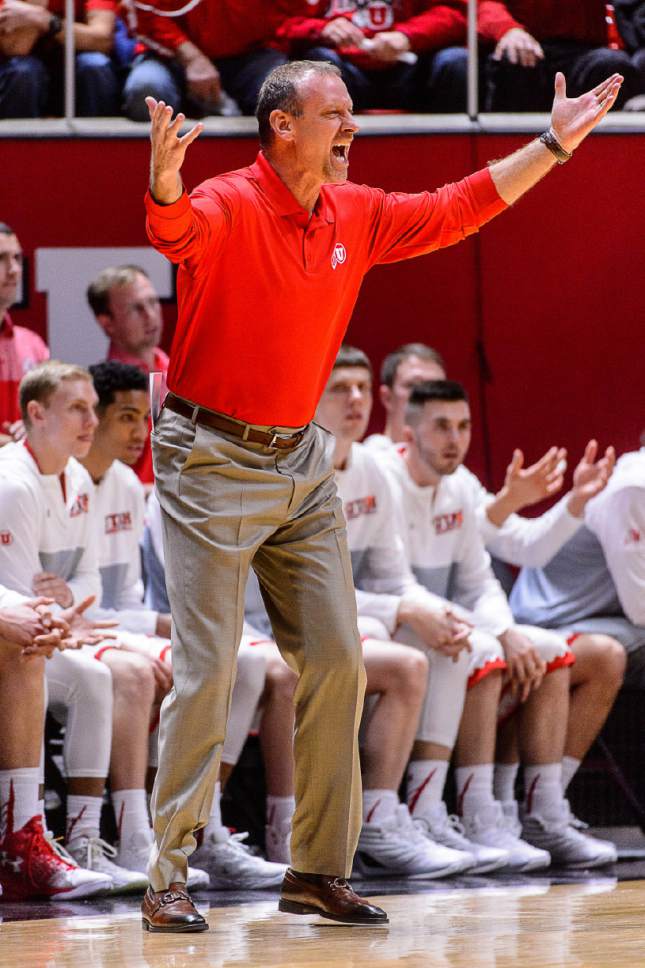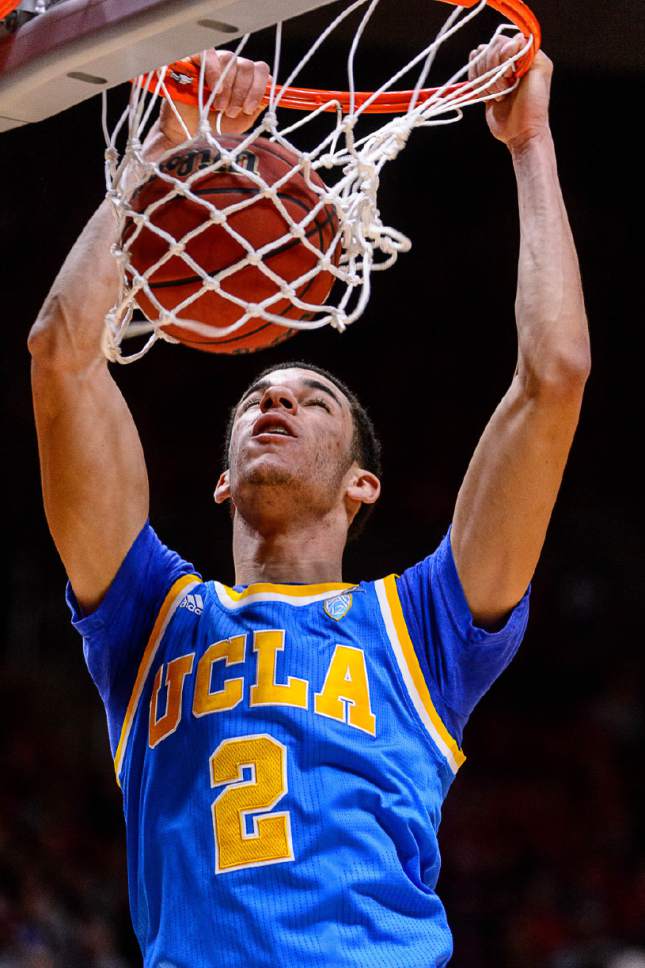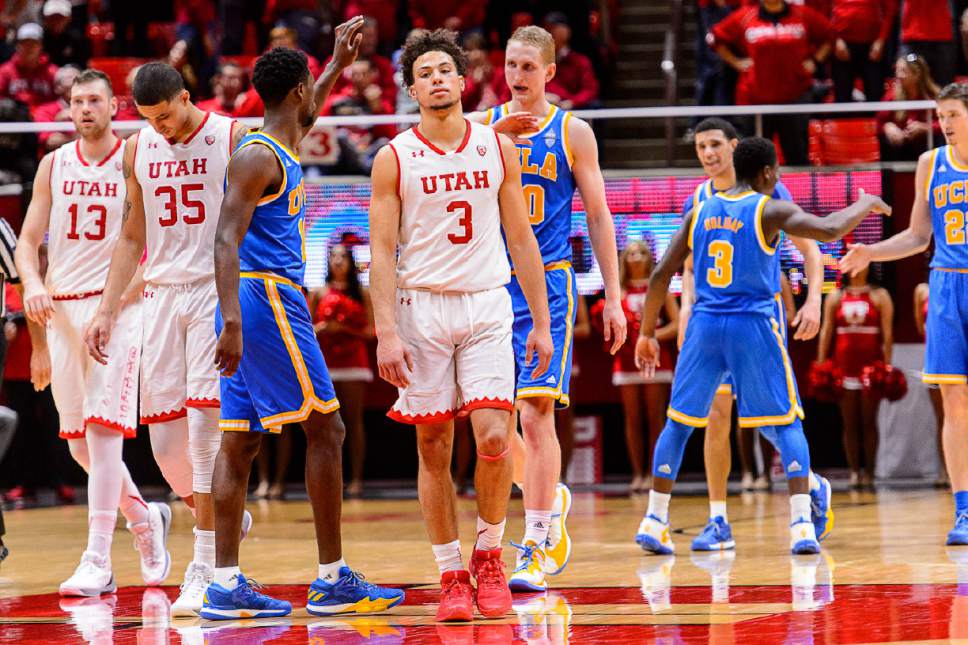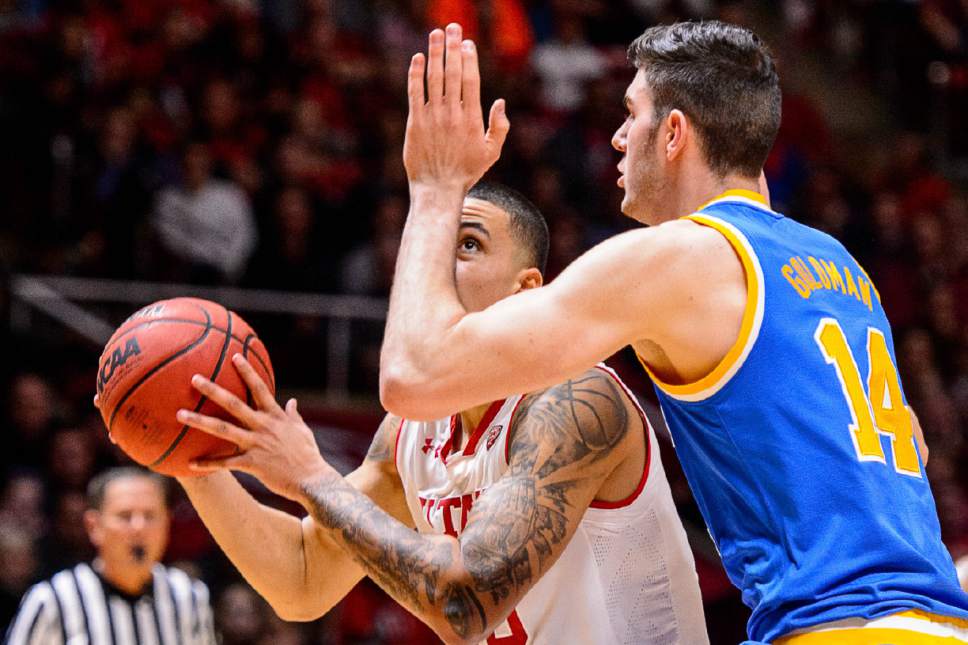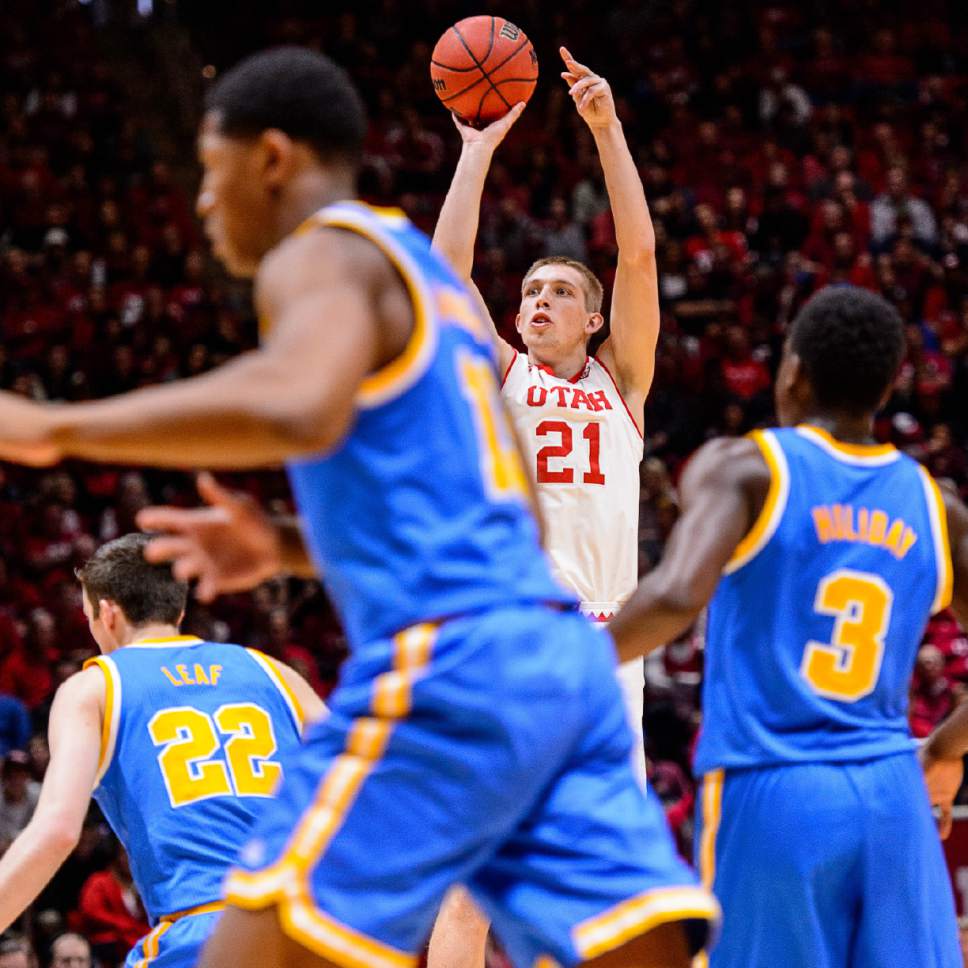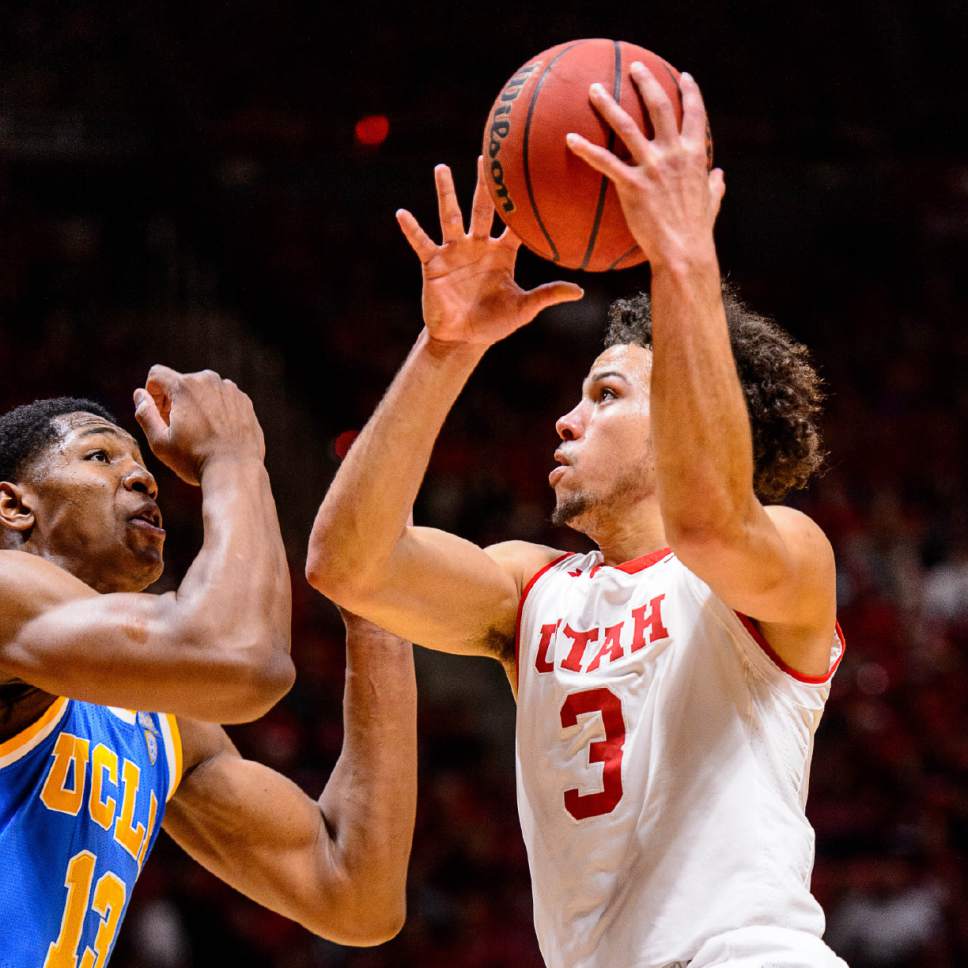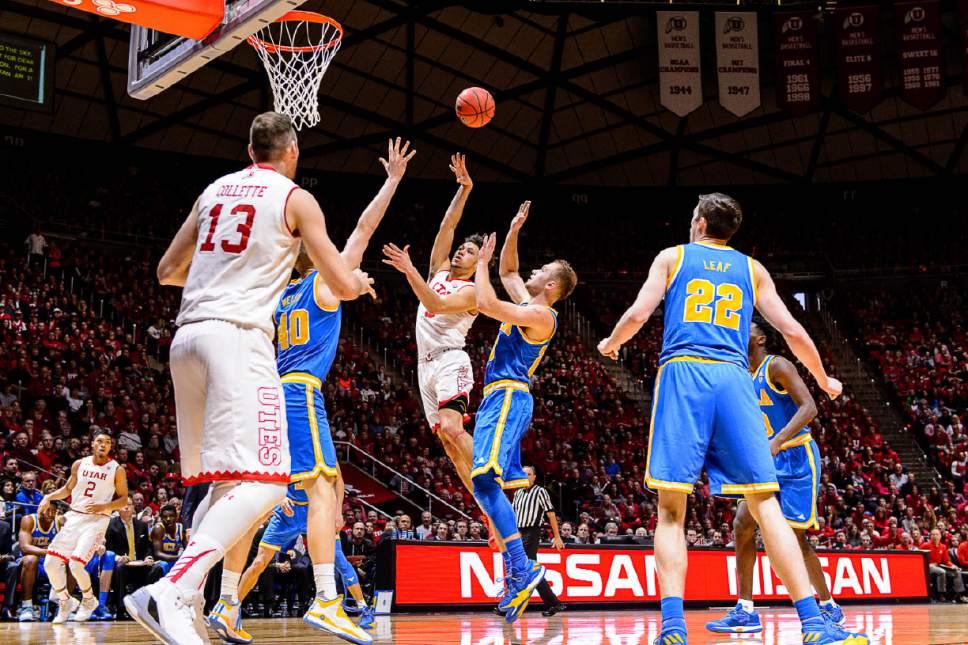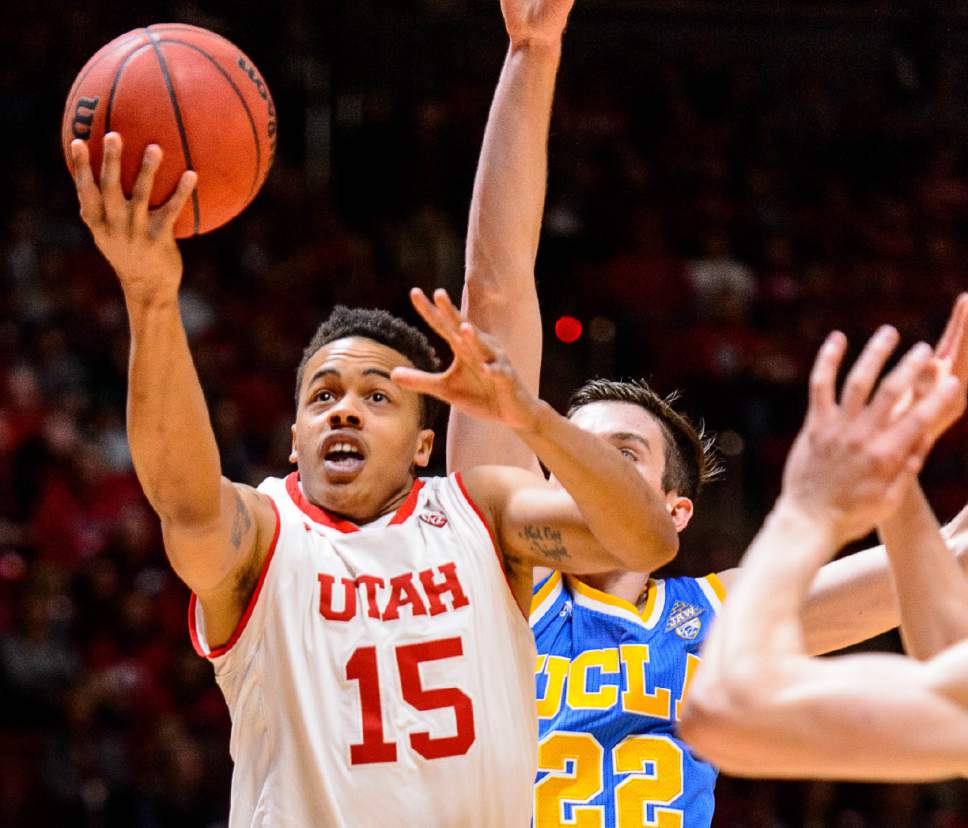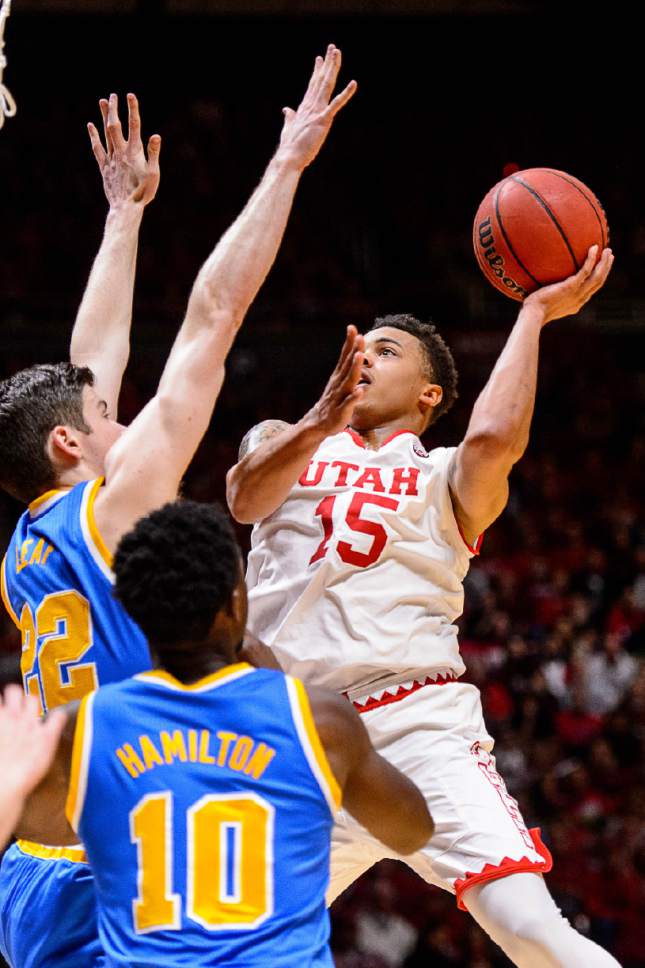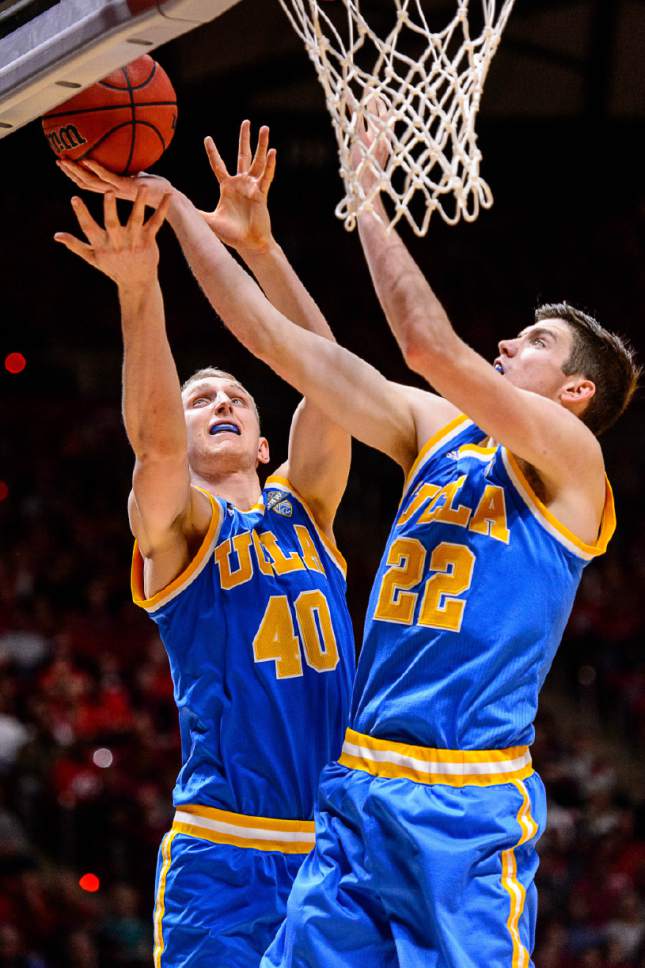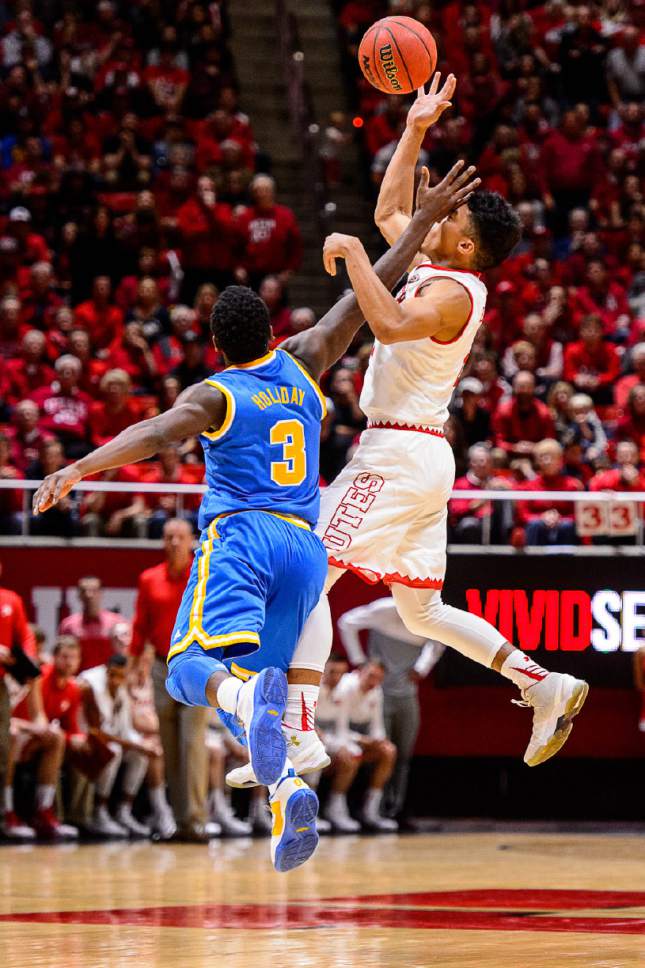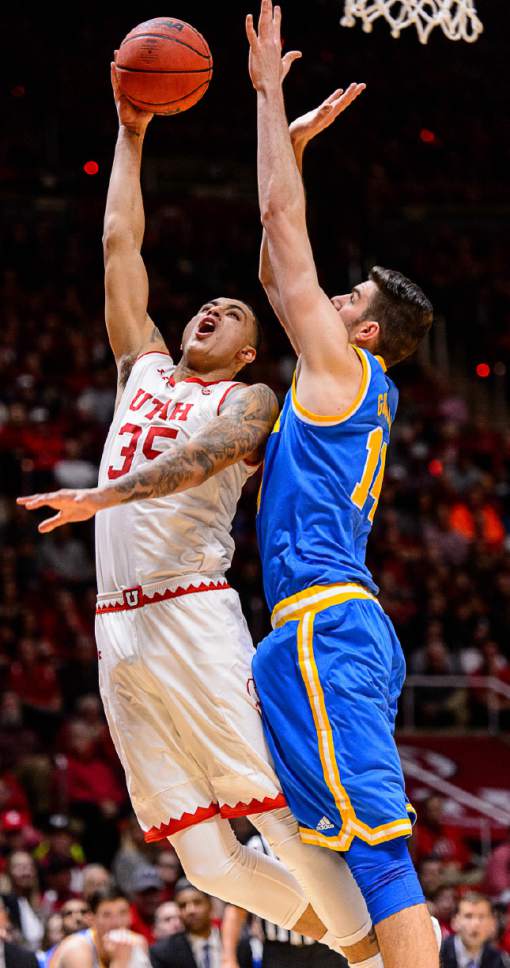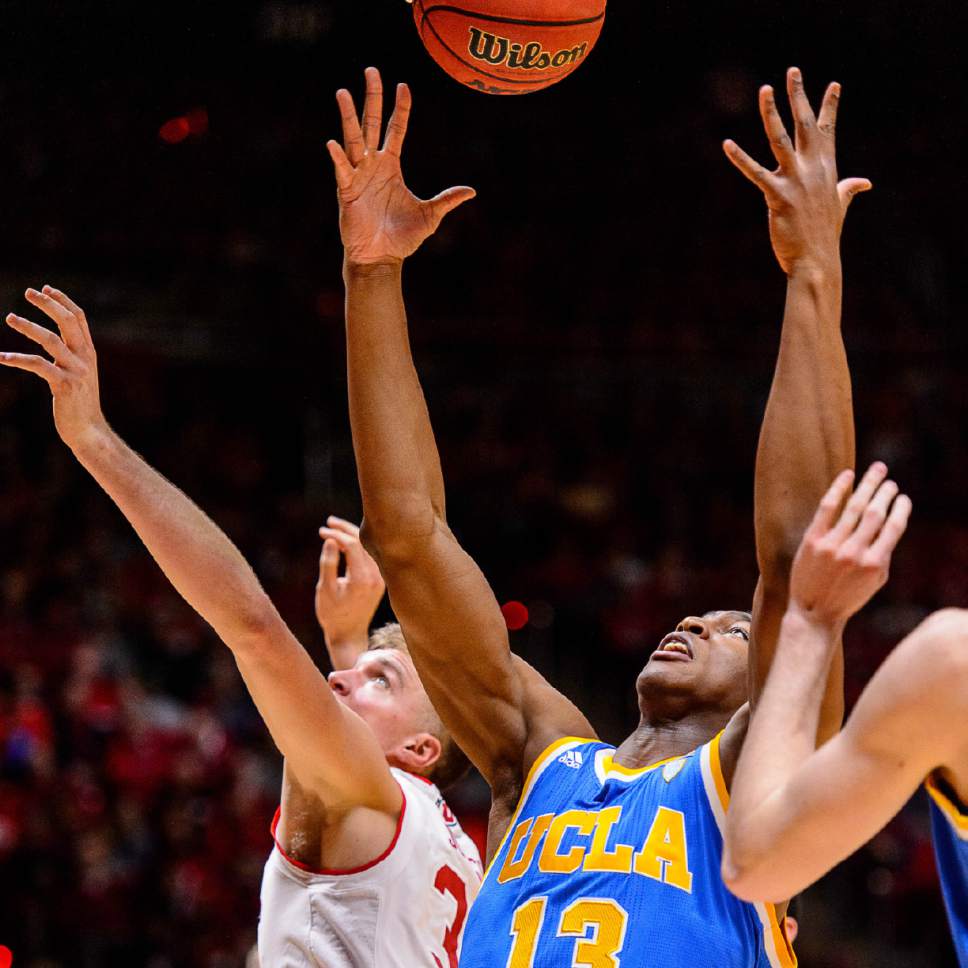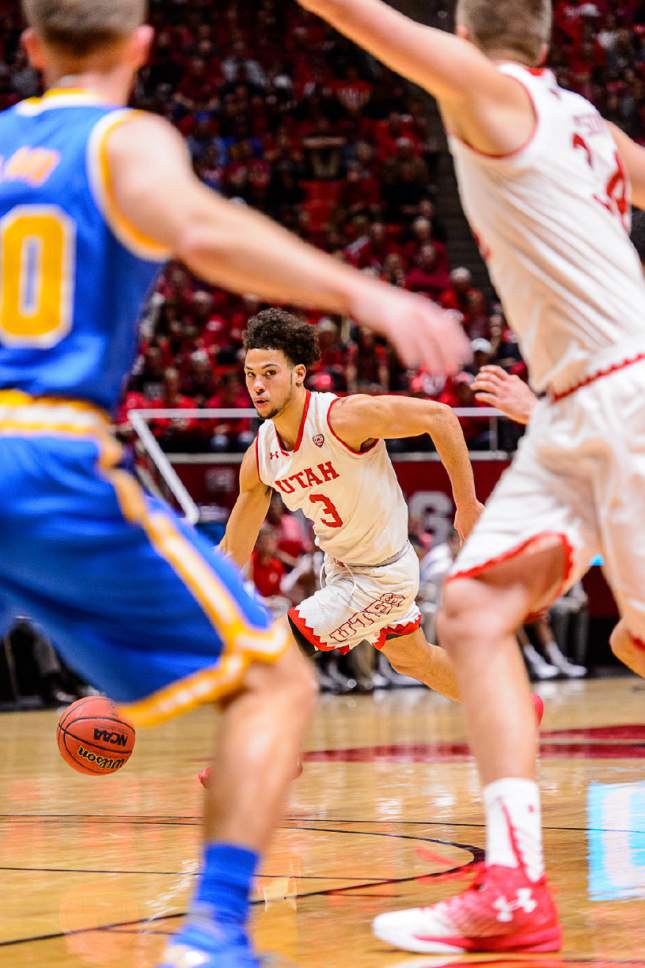This is an archived article that was published on sltrib.com in 2017, and information in the article may be outdated. It is provided only for personal research purposes and may not be reprinted.
Corvallis, Ore. • Among his many columns of numbers, Salt Lake City-based statistician Ken Pomeroy measures a metric he calls "luck."
It's not his invention, but it measures the deviation between how many close games a team would be expected to win by its statistical performance and how many close games the team does win. From his glossary: "Essentially, a team involved in a lot of close games should not win (or lose) all of them. Those that do will be viewed as lucky (or unlucky)."
Of KenPom's 351 ranked teams, Utah measures up at No. 344 in "luck."
It shouldn't be a surprise to anyone who has watched the Utes (17-10, 8-7) play in contested games down the stretch this season. While they've beaten up lesser opponents and boast the 27th best scoring margin (plus-11) in the country, they've faltered in the close ones. They're only 6-8 in games decided by single digits and 1-4 in games decided by four points or less.
Are the Utes unlucky?
Coach Larry Krystkowiak has said before that he doesn't believe in luck — he prefers basketball karma, the concept that working on a skill or facet of the game will pay dividends down the road. But Utah's karma in close games has looked entirely out of whack.
In the basement of Oregon State's Gill Coliseum after the latest one, a 68-67 loss to the last winless team in conference play, Krystkowiak said his team had "seemed ready" from the previous two days of practice.
"What do you want me to say? It's never fun to lose a game," he said. "We weren't very effective going down the stretch. We lost our composure. And that's a team that was hungry for a win. We've gotta be better in some areas."
The troubling thing for Utah, now projecting well short of its NCAA Tournament ambitions, is that those areas repeatedly have been problematic in the tight losses. Mental mistakes haven't been the exception — they've been the norm. Many of the errors haven't even allowed the Utes to get the one thing every team down a few points needs: a shot.
Utah's first loss by a single possession came in Hawaii, when the team was dealing with an injury to one of its veteran stars, Kyle Kuzma. The Utes got a critical stop and rebound down two points with 10 seconds left. On the next possession, they put it in the hands of hot-shooting Sedrick Barefield, who charged toward the basket, drawing an offensive foul and getting a turnover with 4 seconds remaining. Utah lost.
The Utes did get a decent look against UCLA with 4 seconds left, with Kuzma taking a 3-pointer that, in retrospect, he wanted back, but was still a shot. The next play, however, was painful: Kuzma threw it to Lorenzo Bonam all the way down court. Bonam made the shot, but it was just for two points when the Utes needed three. Utah lost.
Against Cal, the Utes had a strong chance to win in regulation before fouling a driving guard with seconds left. In the last overtime, they lost track of Jabari Bird, who managed to sneak behind the defense and get open for a rarely-seen game-winning alley-oop. Utah lost.
Of all of Utah's gut-punch defeats, however, Oregon State took the cake. Utah made only one of its last six shots, while the Beavers hit five of their last six. Stephen Thompson, who scored 30 on Utah in the last meeting and was the proverbial "head of the snake," was able to score 11 points in the last five minutes. When Utah was looking for a shot with 10 seconds left, it turned over the ball — the third turnover in the last 1:38.
Utah had a 98 percent win probability with three minutes remaining in the game, according to KenPom. The unlikely combination of turnovers, misses and failing to stop Oregon State three minutes later had overcome the statistically likely result.
A popular definition of "luck" is when preparation meets opportunity. In that sense, the Utes have been unlucky. The opportunities have been there, but the Utes haven't been prepared.
Why that has happened is murkier. Does Utah run close game situations in practice? Krystkowiak has said he does. Is there something that doesn't click in those practices either in how the lessons are delivered or how they're received? Is there some issue with the group of players that has been assembled this season? It might be a question better answered after the season.
Speaking only minutes after he had walked off the court Sunday night, Krystkowiak held a quiet composure despite his obvious frustrations with yet another close loss.
"I hope we don't quit. I don't sense that we're going to be a group that quits," he said. "There's a lot of ups and downs in the course of a season. We're winding a bit down right now. ... But that's sports. If you carry this with you, the season's going to be over really quick."
Twitter: @kylegoon —
Utah at Colorado
P Thursday, 9 p.m. MST TV • ESPNU


